General Study Tips
13 Sep 2022
Use the following techniques to help make your study sessions more effective.
Chunk up information
Grouping information into chunks can help make it easier to remember.
A common example of chunking up information is breaking a phone number into two parts. This makes it easier to remember two 4-digit chunks instead of 8 individual numbers.
The following tools can help you organise information into memorable chunks:
Concept maps
Concept maps are visual representations of your knowledge of a topic.
To create a concept map, start with the main topic in the centre, and branch out into smaller, specific topics. You can use colours, words or images to show how to break a topic down into specific, easy-to-remember chunks.
Flow charts
Flow charts can be an effective way to learn ideas that involve a process. They allow you to create a visual representation of a series of steps.
To create a flow chart, use shapes and keywords to represent each step of a process. Link these steps with directional arrows to show the flow of the process.
Tables
Tables can help you organise large amounts of information into a one-page summary. This allows you to identify main ideas and compare information.
Find connections
To help you store what you’ve learned, try to connect new information to your existing knowledge. This helps your brain create meaning from what you’re learning.
Some ways to help find connections include:
- creating visual representations of new concepts
- summarising ideas in your own words
- creating stories based on the new information
- using analogies to find similarities between new information and your existing knowledge.
Use memory tricks
You can use memory tricks to make it easier to remember key concepts or formulas.
Some common memory tricks include:
- Acronyms – use the first letter of the words in a phrase to create a shortened word.
- Acrostics – use the first letter of the words in a phrase to create a sentence.
- Rhymes – use keywords, ideas or phrases to create a rhyme.
Emphasise learning over memorising
It’s important to learn and understand new information rather than simply memorising it.
To help you learn and retain new information, you can:
- make weekly summaries of course content
- review your summaries each week
- revise your lecture notes as you progress through the semester
- try to explain the new information to a friend
- imagine how the new information can be practically applied
- test yourself regularly.

0 Comments
There are currently no comments, be the first to leave one